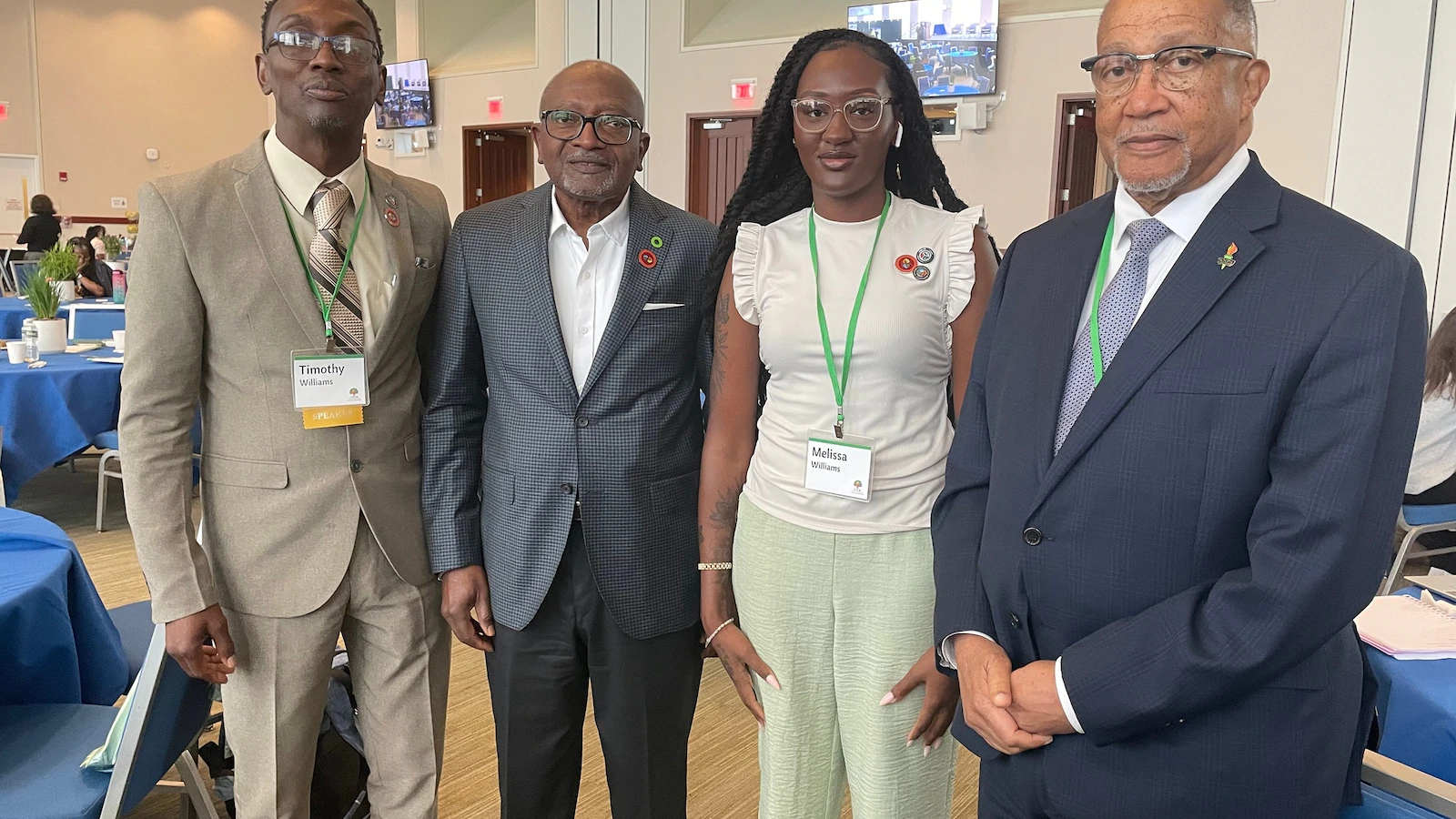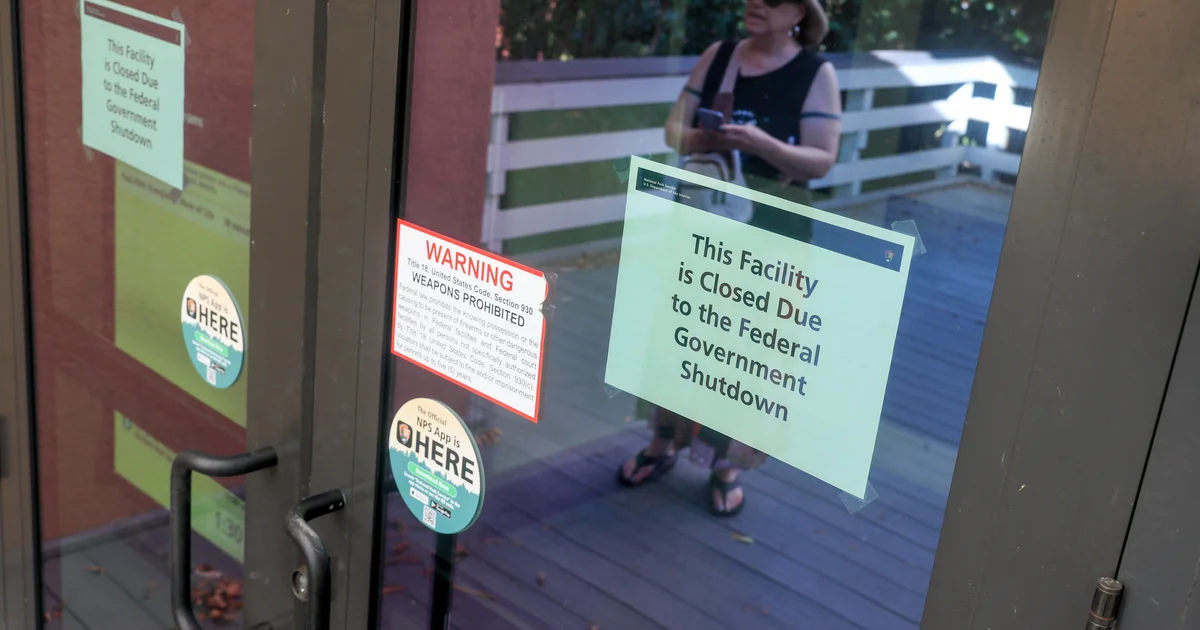By Jared Kofsky,Maia Rosenfeld
Copyright go

When the federal government reached an agreement with Alabama officials last October to address destructive flooding in the predominantly Black Shiloh community, residents thought their calls for help had finally been answered.
One year later, some say nothing has changed.
“We’ve been dealing with the flooding for seven years now,” Timothy Williams, a Shiloh homeowner, pastor and business owner, told ABC News. “It started back in 2018,” Williams said, after he claims a state highway project left the community “in a bowl,” with drains pointing toward their homes.
Now, following a federal civil rights investigation, advocacy by environmental justice advocates, a nationwide awareness tour and a visit to their neighborhood by the former U.S. secretary of transportation, Williams and a few of his neighbors have made one more plea for justice — this time in the courts.
“We want to bring awareness and let people know: If it happened to Shiloh, it can happen to you,” Williams said.
A seven-year saga
Shiloh, a rural community dating back to Reconstruction, sits alongside U.S. Highway 84 near the Alabama-Florida state line. ABC News began following the community’s story in 2023, with the original investigation “Our Inheritance is Washing Away.”
Community members maintain that ever since the Alabama Department of Transportation (ALDOT) widened the highway as part of a major infrastructure initiative, floodwater has poured into their community nearly every time it rains. They say the floods damage their homes, threatening residents’ safety and Shiloh’s 150-year legacy.
“It was a situation that was forced upon us,” Williams said of the highway expansion and subsequent flooding.
ALDOT has maintained that the agency did not treat the Shiloh community unfairly, telling ABC News in a 2023 statement that it “takes these concerns seriously.”
“ALDOT does not believe the widening project, which included measures to address drainage, has resulted in stormwater runoff that is greater than pre-construction conditions,” the 2023 statement said.
ABC News’ investigation uncovered documents, including diary entries and contractor communications, that showed ALDOT had been aware of residents’ concerns associated with the project as early as 2018.
The investigation also showed settlement agreements ALDOT had signed with some residents soon after flooding concerns arose, paying each homeowner up to $5,000. In return, the state placed restrictive covenants on those properties’ deeds that “absolutely release, remise, acquit and forever discharge” ALDOT from future flood claims. ALDOT did not admit to any wrongdoing in the settlements.
The state made a similar deal with the white owners of a nearby daycare that had to close due to flooding — but ALDOT paid those property owners $165,000 for a portion of their property. The daycare owners also signed away their right to sue for flood damages, but the state did not place a restrictive covenant on their remaining property.
In a 2023 statement to ABC News, an ALDOT spokesperson wrote, “We do not believe any unfair treatment has occurred regarding the Shiloh Community, and certainly no discrimination against anyone.”
The statement claimed that restrictive covenants were placed on Shiloh properties “to prevent future owners from filing claims because ALDOT maintains that it has not increased the volume of stormwater runoff being placed on the Shiloh Community.”
As the flooding continued, Williams and his neighbors reached out to the Federal Highway Administration’s Office of Civil Rights, which opened an investigation into their treatment by the state. Shiloh residents also joined forces with Dr. Robert Bullard, an area native known as the “father of environmental justice.”
The community’s advocacy helped launch Shiloh into the national spotlight. In April 2024, then-Secretary of Transportation Pete Buttigieg visited the community and committed to helping Shiloh homeowners. Residents appreciated the attention and Buttigieg’s promise to bring their concerns to Washington.
But community members say Shiloh’s new position in the public eye did not bring an end to the regular inundations of water.
“We were just right at the door and then the door slammed in our face,” Williams said.
‘A first step’ to fix the flooding
In October 2024, the Federal Highway Administration (FHWA) concluded its investigation, reaching a Voluntary Resolution Agreement (VRA) with ALDOT that required the state “to construct infrastructure to mitigate the stormwater runoff.”
Buttigieg touted the agreement as “a first step toward addressing broader needs of the community,” and acknowledged there was more to be done.
The resolution did not hold the state responsible for the flooding in Shiloh, nor did it require ALDOT to further compensate residents for damages they’d previously reported.
Williams and Bullard argued the agreement did not go far enough. In January, as the Biden administration drew to a close, they traveled to Washington, D.C. to submit a petition at the U.S. Department of Transportation’s headquarters. Since that visit, Williams says, Shiloh has seen very little progress.
“Even though the VRA fell short of making the people whole [and] fixing their homes, we thought that this thing was going to be resolved, but you can now see that nothing has been done since we got this new administration,” Williams told ABC News. “We’ve talked to FHWA, and still no movement. Still nothing done with the flooding.”
The FHWA did not respond to a request for comment from ABC News, though a spokesperson for ALDOT told ABC News that state officials are “in close coordination” with the federal agency and expect to determine next steps “in the near future.”
The battle moves to the courts
In July, some Shiloh landowners — representing properties not bound by restrictive covenants — filed a federal lawsuit against the state. In it, they claimed ALDOT had violated their constitutional rights by effectively “taking” their property without just compensation, and that the state had breached its VRA contract with the federal government.
“The waters continue to encroach the properties, and it continues to get worse,” the complaint reads. “The situation changes and worsens with every rain event, and it is unknown at this time when there will be a stabilization of the effects of the flooding.”
ALDOT denied the plaintiffs’ claims, filing a motion to dismiss the suit in August. The agency’s response invoked sovereign immunity for its officials and cited the restrictive covenants placed on some Shiloh properties in 2020, calling those owners’ claims “an improper attempt at a second bite at the apple.” ALDOT also argued that the homeowners had waited too long to sue, since the flood damage began in 2019.
An ALDOT spokesperson told ABC News that in May, the federal government granted the state a six-month extension to the agreed-upon timeframe for improving highway drainage in Shiloh.
“We expect to complete the process of identifying our path forward within the timeframe of the extension granted by the FHWA,” ALDOT’s statement read.
The state’s “path forward” must fall within one of two “improvement plans” outlined in the VRA: either reroute some highway runoff through Shiloh properties if the owners agree to sell their homes, or improve the drainage system within the state’s right-of-way if the homeowners do not want to relocate.
Brian Clark, an attorney representing the plaintiffs, told ABC News that some Shiloh homeowners might be open to relocating, but others would likely say, “My family’s lived here for generations, I’m not moving.”
The extension granted by the FHWA expires on Friday, Oct. 3. As the deadline approaches and ALDOT considers its next move, Shiloh residents say their homes continue to flood. The area has seen heavy rains at least 20 times since the VRA was executed last year, according to an ABC News analysis of National Weather Service data.
“The Shiloh community is in an emergency situation,” Williams told ABC News. “We need help now, not tomorrow, because things are not getting better.”
Williams said that when he first started speaking out about the flooding in his community, he had no idea that he’d still be fighting for Shiloh seven years later. Through hundreds of heavy rainfalls, dozens of advocacy events and three presidential administrations, he has not wavered in his demands.
“We want ALDOT to make the people whole, fix the damages and stop the flooding,” Williams said of his goals for the lawsuit. “That’s all we need them to do. Compensate the people for all the damages that they’ve caused to their properties, their homes, their businesses and then pain and suffering.”



